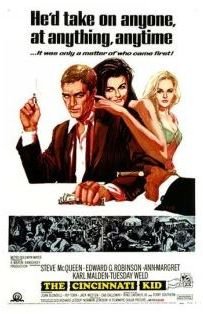Internet Gambling: Will It Ever Be Legal?
A New Opportunity…
Do your community’s zoning laws allow for the operation of Internet gambling casinos? Gambling has always been tightly regulated
mostly because of the vast amounts of money it generates and attendant issues. Any entrepreneur opening a gambling establishment expects to undergo a thorough investigation by city, county and even state offices to ensure it is properly regulated. But today’s Internet age offers a whole new range of possibilities, so that people can gamble at their local Starbucks, at the library, and even in the home. At this time, it’s not approved at the federal level, but some states are beginning to look into it.
So What’s the Risk?
The District of Columbia is among many locales evaluating the possible profits of Internet gambling as a possible fix to budgetary

woes. Matt Richtel in the NY Times reported in August that D.C. officials are tired of watching citizens travel to other places where gambling is permitted. Supporters say that Internet gambling venues could mean as much as $9 million per year added to a budget that is already tighter than a miser squeezing a penny. So doesn’t that make it the greatest idea since sliced bread?
But Internet gambling remains prohibited by the federal government. One of the primary objections to gambling has been the criminal element that’s attracted to piles of money. Who could forget the colorful cast of The Cincinnati Kid and the money that changed hands in the showdown between Howard and The Kid? What about Nathan Detroit in Guys and Dolls—he wouldn’t marry Adelaide simply because he was always on the verge of running just one last craps game.
The so-called criminal element I’m talking about—well, I’m really not talking about them because I don’t want to get a leg broken—causes a real ruckus anytime there are Jacks or better to open. We also met Big Jule in Guys and Dolls, who used his own dice without spots—because he remembered where the spots formerly used to be. Now, that’s just a little fishy if you ask me.
Besides that, they are—well, criminals, and lots of shady street shenanigans go down in any area where there’s plenty of gambling. Even a well-regulated casino creates the perfect environment for money laundering, and I ain’t talking about Tide or Clorox. There is also the little matter of loan-sharking—gambling establishments are havens to secure loans where you just borrow a hundred bucks on Monday and on Friday you owe a zillion.
For many people gambling is a true addiction, as deadly to them and their families as is alcohol or chemical addiction. Programs set up to treat gambling addiction introduce the addict to a 12-step program, just like the one used by Alcoholics Anonymous.
Most people, when gambling legislation comes up in their communities, think only about the morality. Key efforts are typically led by neighborhood men of the cloth. These pious preachers of local churches ask their flocks to protest at zoning meetings and say “no” in the voting booth, and you know why? They’re not worried about sin and iniquity. They just don’t want the gambling joints cutting into their weekly Bingo games.
Do Gamblers Play Fair?
If you’re one of the entrepreneurs considering opening such a venture, proceed with caution. Some companies are being prosecuted for taking investments to get a business running, and then the entrepreneur loses his money. Another type of fraud perpetrated on entrepreneurs involve an up-line casino promising riches to smaller casinos for recruiting gamblers. The smaller casino gets to keep a cut of all its recruited gamblers’ profits and passes the lion’s share of profits to its up-line recruiter. The owners of the up-line casino then go out of business—breaking their contracts with the smaller casino owner—and then reopen somewhere else under a new name.
The Bumpy Legislative Road
What do you really know about Internet gambling? Federal laws have prohibited most gambling via the Wire Act of 1961. The Unlawful Internet Gambling Enforcement Act of 2006 was passed, kind of—with the widespread use of home computers, it was clarified in 2008. The problem was that the clarification took the teeth out of the law. It restricted the use of wire transactions (ACH, card systems, check, money-transmitting businesses, and wire transfer systems) in the processing of gambling transactions. A business can be held culpable if they are found to have actual knowledge of them. The phrases “found to have” and “actual knowledge” have been picked apart in the 2008 clarification.

Moreover, proponents of Internet gambling have protested that specific games such as poker are not games of chance; they are games of skill. They weasel around regulations by selling their customers “computer time” without specifying access to gambling sites. They say they offer games that look like gambling but they’re not really gambling, they are games of amusement.
Since the federal government has waffled on the issue, states are sticking their toes into the test waters of interpretation, knowing full well that if they approve Internet gambling operations, the enterprises risk being shut down by the feds. Besides D.C., other states are considering it—Iowa, California, Massachusetts, Texas, and Ohio, to name the ones this writer knows about.
Media Reporting
CasinoScamReport.com—“Helping Players Avoid Casino Scams Since 2003”—provides game reviews and reports on Internet gambling progress throughout the world. In one article, it chides several United States companies for marketing Internet gambling in the United Kingdom even though it’s illegal here. It also expresses great hope that with the Super Committee appointed by the Republicans and Democrats to straighten out the deficit issue following the debt ceiling debacle, the committee members will find their way to approval of Internet gambling on a federal level.
The Youngstown, Ohio, Vindicator published an Associated Press blurb about charges against purveyors of several Internet games relating to bank fraud and money laundering. Eight of the 11 people charged high-tailed it to homes overseas. Youngstown is an area eager to boost sagging employment with a racetrack proposed as a $300 million venture—it will include entertainment and slot machines. Its developers are waiting to proceed until the state legalizes video slot machines. Bertram DeSouza of the Vindicator also writes that with four casinos approved to open in Ohio, the Republican governor is busily privatizing the lottery, the turnpike, liquor, and the state prison system. Could this possibly be a win-win situation–jobs and money for empty state coffers as well as entrepreneurial opportunities?
But getting back to the Casino Scam Report, the editor who wrote it logged hopes that the Super Committee will only pass Internet poker, as it does involve skill and gambling is just chance. But if poker is approved, why not roulette? In 1986 a woman won a lawsuit for loss of her psychic powers after undergoing a CAT scan. Doesn’t that establish that psychic powers are real? If someone played roulette and won, couldn’t he just say he was using his psychic powers to make the ball land in the pocket? Couldn’t the same be true of Internet slot machines? In fact, everyone playing could say they were engaged in a psychic power contest.
Regulate It - And Tax It, Right?
Despite all the brouhaha about the illegality of internet gambling, people are opening up establishments that permit the purchase of internet time to play games of skill (like Poker) and sweepstakes-type games. Entrepreneurs and legislators alike are eager to establish regulations and harness the profits possible from these places. Many people believe that with careful regulation—and strict consequences for people who abuse the system, plus a percentage of profits set aside for addiction treatment—Internet gambling has a lot to offer.
There could also be a limit to the amount of bets that a person can place within a specific timeframe, something that is already done in some offline betting parlors. Prizes at Internet venues include both cash and merchandise. In the end, however, any municipal or state effort risks being shut down by feds, unless, of course, the Super Committee appointed by President Obama to resolve the debt debacle does something to change current laws.
But in truth, Internet gambling is here to stay. The State of New York offers some of its lottery games via “online computer terminals.” I would call that Internet gambling. New York spends its income from “Internet games of chance” on education. Many communities need it for that or to improve their infrastructures or fund other programs. Washington, D.C. needs the income, too, to avoid other ways of taxing its citizens.
Can that be a bad thing? What do you think?
References
-
Federal Register, November 2008, Prohibition on Funding of Unlawful Internet Gambling: Final Rules. http://edocket.access.gpo.gov/2008/E8-27181.htm
-
Says Her Powers Vanished: Psychic Awarded $988,000 in Hospital CAT Scan Lawsuit, by the Associated Press in 1986, retrieved at http://articles.latimes.com/1986-03-30/news/mn-1672_1_allergic-reaction
-
Images:
Sxc.hu, dice by getwired, license,
-
Unlawful Internet Gambling Enforcement Act of 2006 http://www.fdic.gov/news/news/financial/2010/fil10035a.pdf
-
Youngstown Vindicator stories:
- Proposed Slot Would Move from Vienna to North Jackson http://www.vindy.com/news/2011/aug/05/proposed-trackslot-center-would-move-fro/, August 5, 2011.
- U.S. Rep to Introduce Online Poker in Congress, http://www.vindy.com/news/2011/jun/24/us-rep-to-introduce-online-poker-bill-in/, June 24, 2011
- Ohio Attorney General Seeks Strict Regulations on Internet Cafes, http://www.vindy.com/news/2011/mar/27/ohio-attorney-general-seeks-strict-regul/, March 27, 2011
